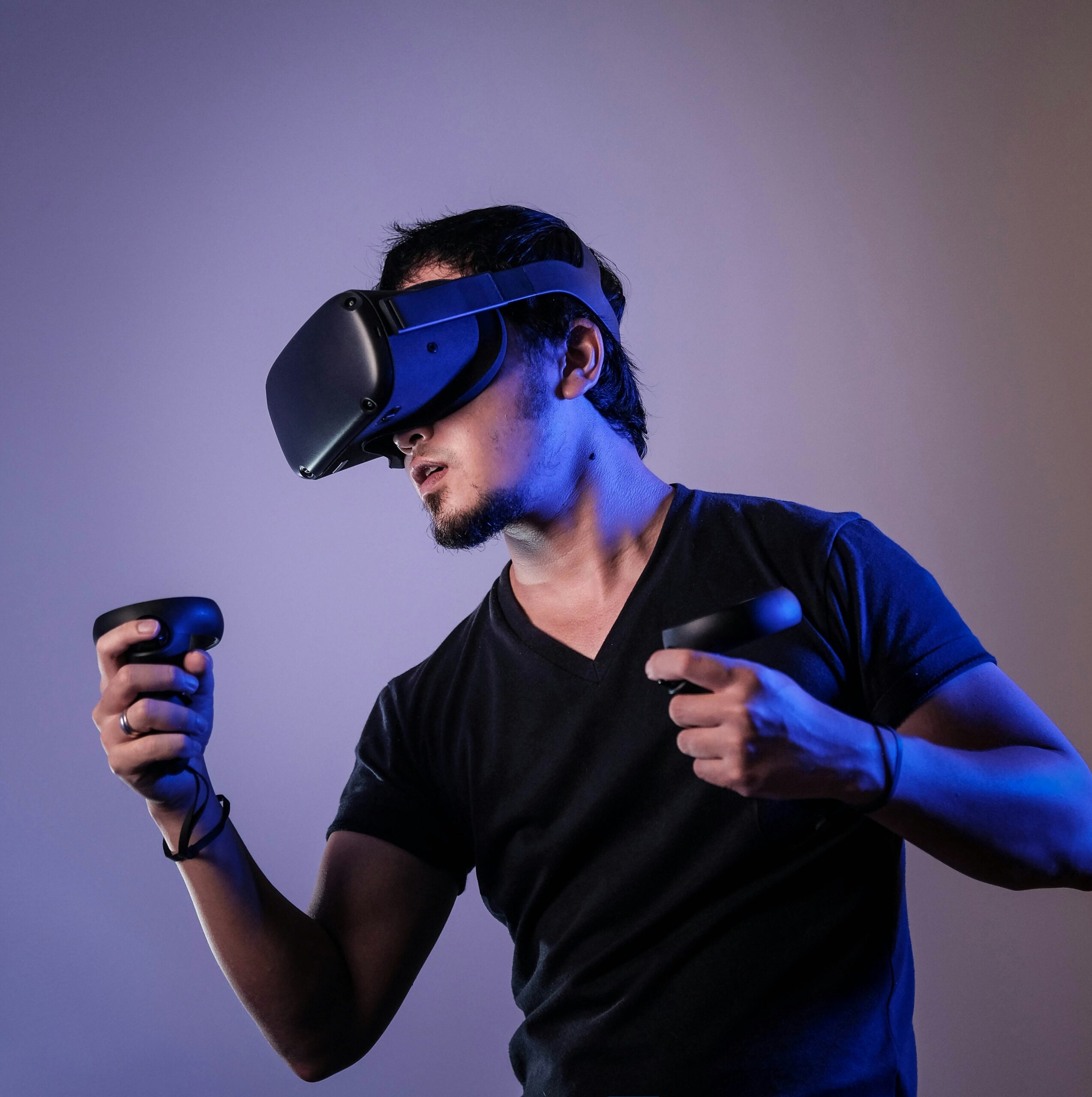Virtual Reality in Higher Education
The impact of VR technology on student engagement and learning outcomes.

Maecenas sed diam eget risus varius blandit sit amet non magna. Nulla vitae elit libero, a pharetra augue.
Virtual Reality in Higher Education
The impact of VR technology on student engagement and learning outcomes.
Virtual reality (VR) technology is revolutionizing the educational landscape, offering unprecedented opportunities for immersive learning experiences that enhance student engagement and learning outcomes. As higher education institutions strive to incorporate cutting-edge technologies into their pedagogical practices, VR stands out as a powerful tool that can transform traditional learning environments.
At the heart of VR’s appeal is its ability to create highly immersive, interactive environments where students can engage with content in ways that were previously unimaginable. Unlike conventional learning methods that rely heavily on textbooks and lectures, VR enables students to step inside virtual worlds where they can explore, interact, and experiment. This level of immersion fosters deeper understanding and retention of complex concepts.
VR enables students to step inside virtual worlds where they can explore, interact, and experiment.
VR enables students to step inside virtual worlds where they can explore, interact, and experiment.
VR enables students to step inside virtual worlds where they can explore, interact, and experiment.
VR enables students to step inside virtual worlds where they can explore, interact, and experiment.
One of the most significant impacts of VR in higher education is its ability to make abstract or difficult-to-visualize subjects more tangible. For instance, in disciplines like medicine and engineering, VR can simulate real-world scenarios that allow students to practice and hone their skills in a safe, controlled environment. Medical students can perform virtual surgeries, gaining hands-on experience without the risks associated with real-life procedures. Engineering students can construct and test virtual models, observing the effects of different variables in real-time.
Moreover, VR technology is democratizing education by providing access to experiences that may be geographically or financially inaccessible. Students can embark on virtual field trips to historical sites, laboratories, and even outer space, all from the comfort of their classrooms. This accessibility broadens their horizons and enriches their educational journey, making learning more inclusive and equitable.
VR technology is democratizing education by providing access to experiences that may be geographically or financially inaccessible
— Steve Gates
VR technology is democratizing education by providing access to experiences that may be geographically or financially inaccessible
— Steve Gates
VR technology is democratizing education by providing access to experiences that may be geographically or financially inaccessible
Steve Gates
VR technology is democratizing education by providing access to experiences that may be geographically or financially inaccessible
— Steve Gates
VR technology is democratizing education by providing access to experiences that may be geographically or financially inaccessible
— Steve Gates
VR technology is democratizing education by providing access to experiences that may be geographically or financially inaccessible
— Steve Gates
The interactive nature of VR also promotes active learning, a pedagogical approach that encourages students to engage directly with the material, collaborate with peers, and apply their knowledge in practical settings. This active engagement is linked to improved critical thinking and problem-solving skills. For example, in a virtual biology lab, students can conduct experiments, manipulate variables, and observe outcomes, leading to a more profound and practical understanding of scientific principles.
Furthermore, VR is proving to be a valuable tool in enhancing student motivation and reducing disengagement. The novelty and excitement of VR experiences capture students’ attention and sustain their interest over time. Educators are reporting higher levels of student participation and enthusiasm in courses that integrate VR technology, leading to better academic performance and satisfaction.
However, the integration of VR in higher education is not without challenges. Institutions must invest in the necessary infrastructure, including VR headsets and compatible software, which can be costly. Additionally, there is a learning curve for both instructors and students in adapting to this new mode of learning. Educators need to develop VR-specific curricula and teaching strategies to fully leverage the potential of this technology.
Despite these challenges, the benefits of VR in higher education are becoming increasingly evident. As more institutions embrace this innovative tool, we are likely to see a shift towards more immersive, interactive, and engaging learning experiences. The potential of VR to transform education is vast, promising to create a more dynamic and effective learning environment that prepares students for the complexities of the modern world.
In conclusion, virtual reality is not just a futuristic concept; it is a tangible, transformative force in higher education. By offering immersive, interactive, and accessible learning experiences, VR is enhancing student engagement and learning outcomes in profound ways. As institutions continue to integrate this technology into their pedagogical practices, the future of education looks increasingly bright and innovative.

Comments & Discussion
Boston University moderates comments to facilitate an informed, substantive, civil conversation. Abusive, profane, self-promotional, misleading, incoherent or off-topic comments will be rejected. Moderators are staffed during regular business hours (EST) and can only accept comments written in English. Statistics or facts must include a citation or a link to the citation.